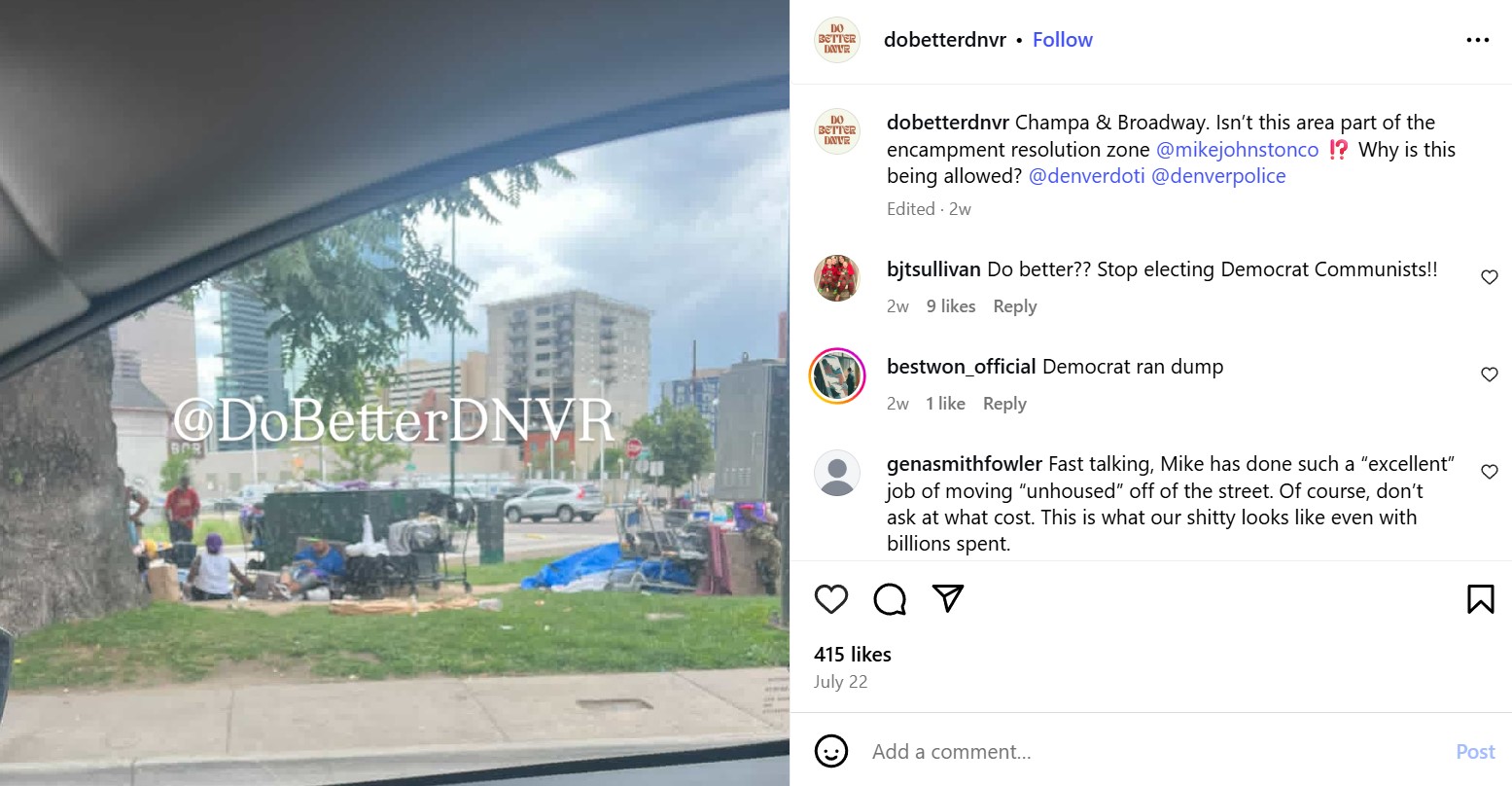On Aug. 1, The Denver Post exposed the names, locations, voter registrations, and employment of three private citizens who legally obtained public information and sent some to the popular social media account Do Better Denver. On Aug. 7, a Denver Post columnist defended the paper’s decision to dox the three women for sharing public information.
Explainer Denver Post Doxxes Citizens For Sharing Public Records On Crime
“People who claim to be citizen journalists must stand by their work with a byline and endure the negative comments and threats that come with the job,” wrote Denver Post columnist Krista Kafer.
The Post identified the three people it doxxed by doing a public records request for those women’s public records requests: “The Post filed open records requests to obtain copies of requests tied to DoBetterDNVR,” wrote The Post’s crime reporter Shelly Bradbury in her Aug. 1 article. On Aug. 5, the Denver Gazette confirmed the three doxxed women are not the account administrator. The public records they shared with the accountholder comprise less than 1 percent of Do Better Denver posts.
Bradbury also wrote that the Post targeted the women specifically for exercising their legal rights to view public information. The three, Bradbury wrote, “stand out because of their involvement in the account since its early days in 2023, their connections to each other, and because they did not just send a single video or photo to the account but pursued information through open records requests.”
Do Better Denver alleged the Post did this at the behest of local government officials angry about public disclosures of their activities. One public record one of the women discovered, for example, showed the city paid $2.1 million for vacant rooms for illegal immigrants. Denver Mayor Mike Johnston’s spokesman did not respond to Federalist requests for comment Monday.
The anonymous Do Better Denver administrator said the account receives death threats for posting public records about people with criminal records that include kidnapping, battery, and work for terrorist gangs such as Tren de Aragua (TDA). The administrator uses a “burner phone,” stays anonymous, and takes other preventative measures because of those threats.
In March, a CBS investigation found Johnston’s staff stopped communicating in emails subject to open records requests after they received records requests from a conservative legal group about the city’s refusal to enforce immigration laws. Johnston’s staff switched to an encrypted app that automatically deletes messages, which could violate open records laws, attorneys told CBS and The Denver Gazette.
The Aug. 1 Post article says Denver police stopped responding to information requests in March from Do Better Denver on X at the direction of the mayor’s office. In defense of its decision to dox the three women, the Post quotes a woman whose arrest for assaulting a police officer was posted on Do Better Denver: “Don’t dish out what you can’t take,” Serena Palacios reportedly told the paper.
Since 2023, Do Better Denver’s rapidly growing Instagram and X accounts have posted videos of public indecency, vagrancy, and crime, plus pictures of criminal records and crime- and vagrancy-related open records requests. Together, the accounts currently have nearly 150,000 followers.
The accounts criticize public officials for sanctuary city policies inviting gang activity, releasing violent criminals on low bonds, and otherwise enabling public disorder. Denver has sued the Trump administration for opposing such policies. The Aug. 1 Denver Post article identified three people who occasionally volunteered information that Do Better Denver published: “Arizona resident Jill Osa, Denver resident Megan Anderson and New Mexico resident Alexandra Pacheco.” Osa and her husband own a Denver rental property, and Pacheco lived in Denver until recently.
Osa told The Federalist in a Friday phone call that she asked Bradbury, Colacioppo, the Denver Post’s parent company, and their lawyers not to publish identifying information about her family. They did anyway. She said the doxxing prompted threatening comments, including since-removed social media posts giving details about her home. “It’s a little unnerving when the doorbell rings and you’re wondering if it’s a crazy person who is upset or it’s a delivery person,” Osa said. A family member underwent a major surgery the same week the Post articles published, making it difficult for Osa to focus on her family when they needed her, she said.
After city officials didn’t answer her questions about their plan to locate a homeless shelter adjacent to her Denver property, Osa began using public records requests to learn more. A small fraction of those she shared with Do Better Denver. She also did a handful of requests for the account after she’d gotten comfortable using this basic transparency tool. “I’m just an average citizen who wanted answers and wasn’t getting them when she went to her elected officials,” Osa said.
Why it matters
- The Denver Post's decision to dox private citizens raises ethical concerns about press freedom and the safety of individuals sharing public information.
- The incident highlights tensions between citizen journalism and traditional media, especially regarding accountability and transparency.
- The doxxing has sparked public outrage and discussions about the implications of exposing individuals for exercising their rights to access public records.
What’s next
- Do Better Denver may pursue legal action against the Denver Post for the doxxing incident.
- Public outcry could lead to calls for policy changes regarding the protection of citizen journalists.
- Investigations into the mayor's office communications practices may be initiated following the revelations.
